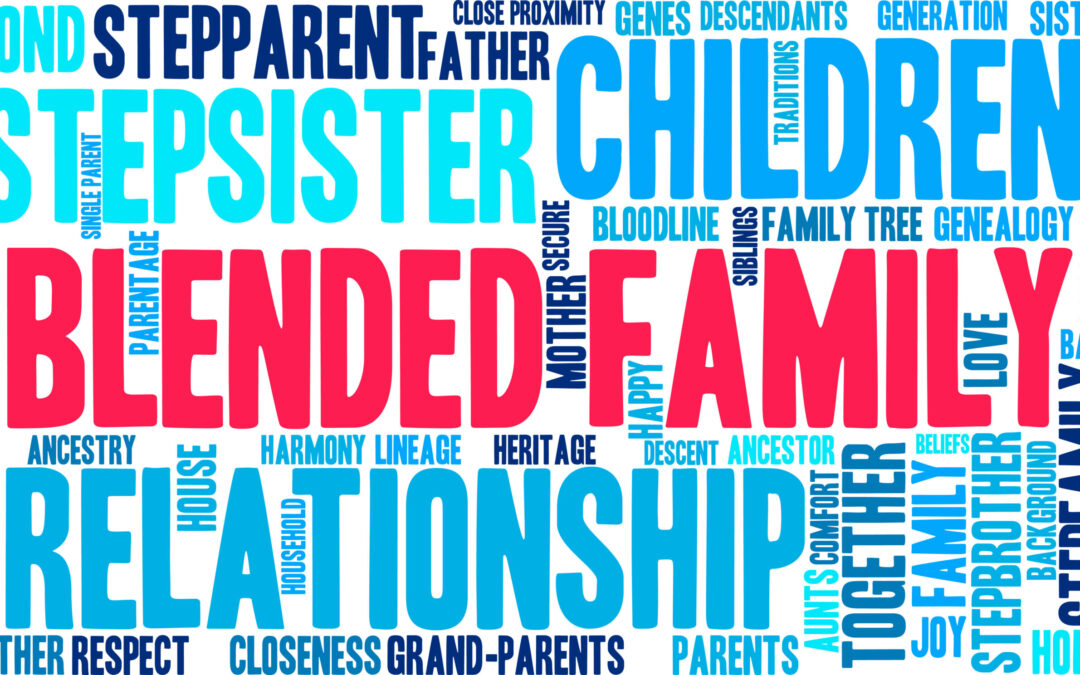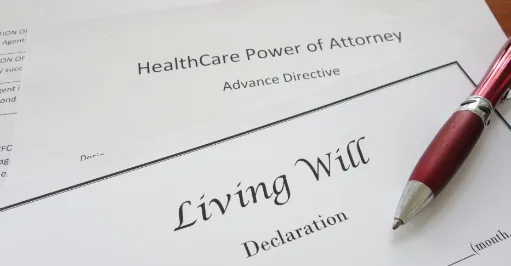Dianne Feinstein was the longest-serving female United States senator in history. She passed away in September of this year at 90. Elected to the Senate in 1992, Feinstein left behind a political legacy that spanned nearly 31 years. She also left an estate worth tens of millions of dollars.
Although much of her wealth came from her marriage to the late billionaire financier Richard C. Blum, Senator Feinstein was also successful in her own right. During their marriage, Feinstein and Blum established a marital trust, now the subject of a fierce legal battle between Feinstein’s daughter and Blum’s three daughters.
A judge has ordered the dispute to be resolved in private mediation.[1] While this could keep the final resolution outside public view, the legal drama offers lessons illustrating the need for careful estate planning in blended families.
Feinstein’s Assets and Estimated Worth
One of the Senate’s wealthiest members, Feinstein had a net worth estimated at around $70 million.[2] A financial disclosure form filed in May showed that she owned millions in a blind trust, several large bank accounts, and a multimillion-dollar condo in Hawaii.[3] She also owned a mansion in Washington, DC, worth more than $7 million and a private jet that averages more than $61 million if purchased used.[4].
Marital Trust and Legal Dispute
Feinstein and Blum married in 1980 and lived together in California, a community property state until Richard died in 2022. Feinstein had one daughter, Katherine, with a previous husband. Blum had three daughters from a prior marriage.
As the only daughter of Senator Feinstein, Katherine is set to inherit all of her mother’s wealth. She also benefits from one-quarter of the estate left by Feinstein and Blum. But how much of that Katherine receives may depend on the outcome of a messy estate dispute.
Upon Blum’s death, the trustees were required to fund assets into a marital trust to provide for Feinstein during her lifetime. The marital trust would be for Dianne’s benefit until her death, at which point Blum’s daughters would receive the remaining money and property.
Three lawsuits were filed before Dianne’s death, with Katherine serving as agent under a power of attorney. Even after Dianne’s death, the lawsuits continue. They contain allegations of elder abuse, failure to fund the marital trust properly, and failure to reimburse Senator Feinstein for her medical expenses. One of the allegations is that the Stinson Beach home should have been sold but was used by Blum’s daughters at Feinstein’s expense.[5]
The lawsuits could be put on hold temporarily while Feinstein’s estate is probated. Katherine, however, should be able to continue her claims, possibly in a new role as executor of Feinstein’s estate.[6] Shortly before the Senator’s death, a California judge ordered the lawsuits to be settled through mediation.[7]
Estate Planning Takeaways from the Feinstein-Blum Family Feud
Blended families, or stepfamilies, are increasingly becoming the norm. Around half of US families are now remarried or recoupled.[8]
While any family can succumb to infighting over inheritances, blended families may be more prone to disputes, especially when one spouse dies, and the surviving spouse and children have differences of opinion. Significant assets, like those in the Feinstein-Blum estates, can further raise the stakes among heirs.
The Feinstein-Blum estate plan is what estate planning attorneys characterize as a “yours, mine, and ours” plan, which deals with respective children differently and is common in blended families.[9] However, careful planning is needed to prevent conflicts of interest in this arrangement.
The trust at the center of the Feinstein legal dispute was set up so that, after Blum’s death, Feinstein received trust income during her lifetime, and the remaining assets went to Blum’s daughters after her death. This created competing interests between the Senator, who needed money from the trust to pay for current expenses, and the Blum daughters, who had the motivation to preserve more trust assets for themselves—leaving assets outright to Dianne or to a trust where the remainder went to Katherine while leaving other assets to Blum’s children could have prevented this.
In every family, blended or not, it is important to be as clear as possible about the terms of distributions. Here are a few other estate planning lessons from the Feinstein lawsuits:
- Be careful about naming trustees. If even some of the lawsuit allegations are true, it would mean that the trustees breached their fiduciary duties and that Blum may have made poor trustee choices. Trustees have a lot of power and should be chosen accordingly. Naming former business associates as trustees when Blum had a wife and stepdaughter might have raised questions about objectivity.
- The importance of communication. If heirs have no idea what to expect from an estate plan, they could be surprised and more likely to challenge the administration in court. Consider informing children, spouses, and parents about the structure of your estate plan to prevent any unexpected outcomes that might increase the chances of litigation. People could have strong feelings about certain assets. They should voice them up front and make appropriate arrangements.
- Distribute trust assets promptly. Perceived delays in distributing trust assets appear to have deepened beneficiary suspicions about trustee management in this case. The trustee should administer the trust as expeditiously as possible after the grantor’s death. Legitimate delays can happen; if they do, transparency and communication with beneficiaries may stave off a lawsuit.
Protect Your Legacy and Loved Ones
Trust and estate litigation only makes things worse for grieving families. It can make a private family situation public—which undermines a major benefit of placing assets in trusts—drain away estate assets in legal costs and irreparably damage relationships.
Whether you have a blended or traditional family, proper estate planning is a crucial step to ensure a smooth transition of assets and minimize potential conflicts within a blended family. A thorough estate plan that includes provisions such as a statement of intent that explicitly describes goals for trust assets can reduce the chance of tensions between beneficiaries and ensure that your legacy is honored in the way you intend. Open communication among family members is paramount during this process. Clearly outlining your wishes, designating beneficiaries, and specifying asset distribution can prevent misunderstandings and disputes down the line. Discussing the plan with family members, including step-relatives, fosters transparency and allows everyone to voice concerns or questions. For a review of your plan or if you are just getting started, call our office or book a call for a comprehensive New York Estate Plan.
[1] Kelly Phillips Erb, After Sen. Feinstein’s Death, Family’s Fight over Assets Likely to Intensify, Forbes (Oct. 7, 2023), https://www.forbes.com/sites/kellyphillipserb/2023/10/07/after-sen-feinsteins-death-familys-fight-over-assets-likely-to-intensify/?sh=62a8dd4a22c8.
[2] Anne Sulkin Stern, Will Dianne Feinstein’s Legal Drama Continue Following Her Death? WealthManagement.com (Oct. 6, 2023), https://www.wealthmanagement.com/estate-planning/will-dianne-feinstein-s-legal-drama-continue-following-her-death.
[3] Aimee Picchi, How Much Was Dianne Feinstein Worth When She Died? CBS News (Sept. 29, 2023), https://www.cbsnews.com/news/dianne-feinstein-net-worth-richard-blum-children.
[4] Michael Kaplan, Dianne Feinstein Leaves Stunning Properties to Her, Billionaire Husband’s Feuding Kids, N.Y. Post (Sept. 29, 2023), https://nypost.com/2023/09/29/dianne-feinsteins-stunning-properties-and-feuding-family.
[5] Brent D. Griffiths, Sen. Dianne Feinstein Says She’s Being Cut Out of Millions from Her Husband’s Estate in an Act of “Financial Elder Abuse,” Bus. Insider (Aug. 16, 2023), https://www.businessinsider.com/dianne-feinstein-financial-elder-abuse-blum-trust-lawsuit-california-2023-8.
[6] Stern, supra note 2.
[7] Dustin Gardiner, Sen. Feinstein Family Legal Drama Sent to Private Mediation, Politico (Sept. 11, 2023), https://www.politico.com/news/2023/09/11/judge-private-mediation-feinstein-finances-00115024.
[8] Stepfamily Statistics, The Stepfamily Found., https://www.stepfamily.org/stepfamily-statistics.html (last visited Nov. 29, 2023).
[9] Carolyn Said, With Sen. Dianne Feinstein’s Death, Will the Lawsuits over Her Late Husband’s Estate Continue?, S.F. Chron. (Oct. 3, 2023), https://www.sfchronicle.com/california/article/dianne-feinstein-estate-lawsuits-18401955.php.
.






